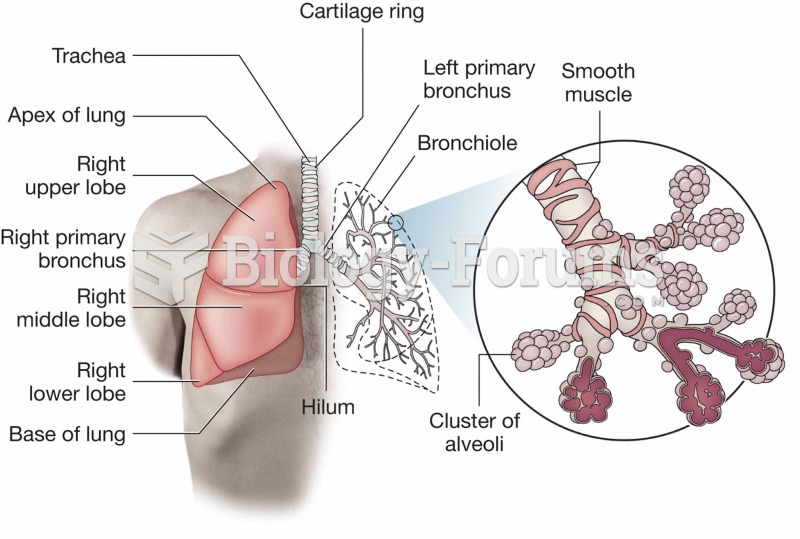|
|
|
In 1835 it was discovered that a disease of silkworms known as muscardine could be transferred from one silkworm to another, and was caused by a fungus.
According to the FDA, adverse drug events harmed or killed approximately 1,200,000 people in the United States in the year 2015.
Only one in 10 cancer deaths is caused by the primary tumor. The vast majority of cancer mortality is caused by cells breaking away from the main tumor and metastasizing to other parts of the body, such as the brain, bones, or liver.
Vaccines cause herd immunity. If the majority of people in a community have been vaccinated against a disease, an unvaccinated person is less likely to get the disease since others are less likely to become sick from it and spread the disease.
All adults should have their cholesterol levels checked once every 5 years. During 2009–2010, 69.4% of Americans age 20 and older reported having their cholesterol checked within the last five years.
 The respiratory system: nasal cavity, pharynx, larynx, trachea, bronchus, and lung with expanded vie
The respiratory system: nasal cavity, pharynx, larynx, trachea, bronchus, and lung with expanded vie
 The Land Ordinance of 1785 called for surveying and dividing the Western Territories into square mil
The Land Ordinance of 1785 called for surveying and dividing the Western Territories into square mil





